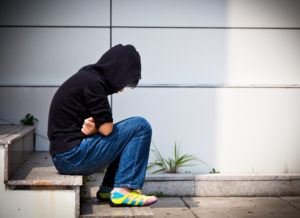From NPR: “The study [published in the Journal of the American Medical Association] is ‘probably the most rigorous test we have to date of the hypothesis that early childhood trauma has these strong, independent effects on adult outcomes,’ [William Copeland, a professor of psychiatry at the University of Vermont] says.
For Copeland, the wide-ranging impacts of trauma call for broad-based policy solutions in addition to individual interventions. ‘It has to be a discussion we have on a public health policy level,’ he says. […]
‘I think it should put to rest any kind of speculation about early childhood trauma and later life difficulties,’ [Kathryn Magruder, an epidemiologist and professor of psychiatry at the Medical University of South Carolina] says.
Though the link has been shown in earlier research, Magruder says, this new study can help direct future research and policy. ‘Why are we revisiting it? Because it is time to think about prevention,’ she says. Trauma is a public health problem, she adds, and should be met with a public health approach.
Psychologist Marc Gelkopf agrees. In an editorial published along with the study, he writes: ‘If the ills of our societies, including trauma, are to be tackled seriously, then injustice must be held accountable.’ […]
Bills like the SUPPORT Act enjoy bipartisan and are a promising start, says Purtle — but they don’t go far enough. To really reduce trauma and mitigate its effects, he says, policymakers must pursue community investment and policies like minimum wage laws that reduce economic pressure on people who are struggling.
‘It’s more than just “toughen up and deal with it,”‘ he says. ‘A lot of it comes down to people not having to live their lives in a state of chronic and constant stress.'”












